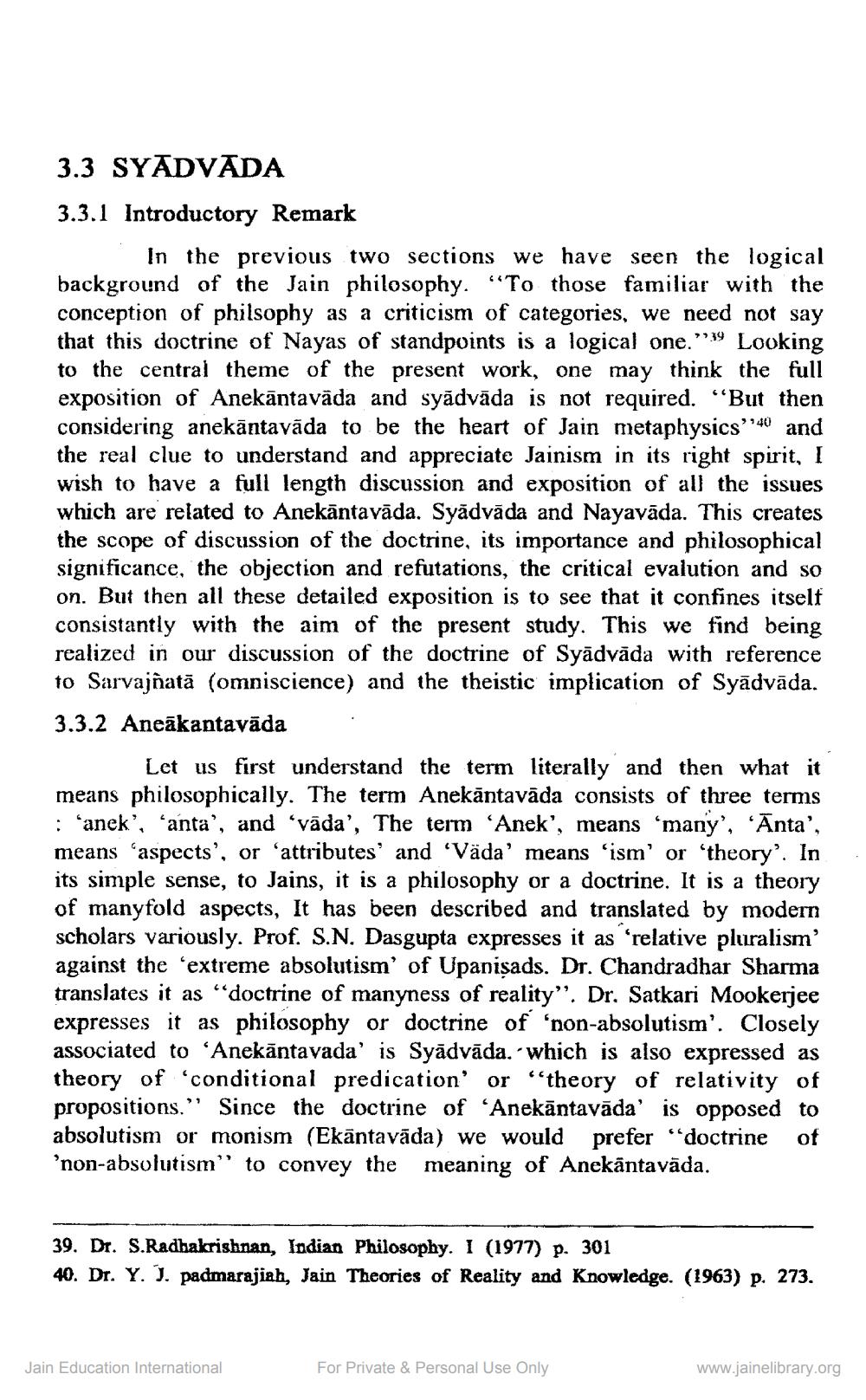________________
3.3 SYĀDVĀDA 3.3.1 Introductory Remark
In the previous two sections we have seen the logical background of the Jain philosophy. "To those familiar with the conception of philsophy as a criticism of categories, we need not say that this doctrine of Nayas of standpoints is a logical one."34 Looking to the central theme of the present work, one may think the full exposition of Anekāntavāda and syądvāda is not required. “But then considering anekāntavāda to be the heart of Jain metaphysics%40 and the real clue to understand and appreciate Jainism in its right spirit, I wish to have a full length discussion and exposition of all the issues which are related to Anekāntavāda. Syādvāda and Nayavāda. This creates the scope of discussion of the doctrine, its importance and philosophical significance, the objection and refutations, the critical evalution and so on. But then all these detailed exposition is to see that it confines itself consistantly with the aim of the present study. This we find being realized in our discussion of the doctrine of Syādvāda with reference to Sarvajñatā (omniscience) and the theistic implication of Syādvāda. 3.3.2 Aneākantavāda
Let us first understand the term literally and then what it means philosophically. The term Anekāntavāda consists of three terms : 'anek', 'anta', and ‘vāda', The term 'Anek', means 'many', 'Anta', means “aspects’, or 'attributes' and 'Väda' means 'ism' or 'theory'. In its simple sense, to Jains, it is a philosophy or a doctrine. It is a theory of manyfold aspects, It has been described and translated by modern scholars variously. Prof. S.N. Dasgupta expresses it as 'relative pluralism' against the 'extreme absolutism' of Upanisads. Dr. Chandradhar Sharma translates it as "doctrine of manyness of reality”. Dr. Satkari Mookerjee expresses it as philosophy or doctrine of 'non-absolutism'. Closely associated to 'Anekāntavada' is Syādvāda. which is also expressed as theory of 'conditional predication' or “theory of relativity of propositions." Since the doctrine of ‘Anekāntavāda' is opposed to absolutism or monism (Ekāntavāda) we would prefer "doctrine of ’non-absolutism” to convey the meaning of Anekāntavāda.
39. Dr. S.Radhakrishnan, Indian Philosophy. I (1977) p. 301 40. Dr. Y. ). padmarajiah, Jain Theories of Reality and Knowledge. (1963) p. 273.
Jain Education International
For Private & Personal Use Only
www.jainelibrary.org




